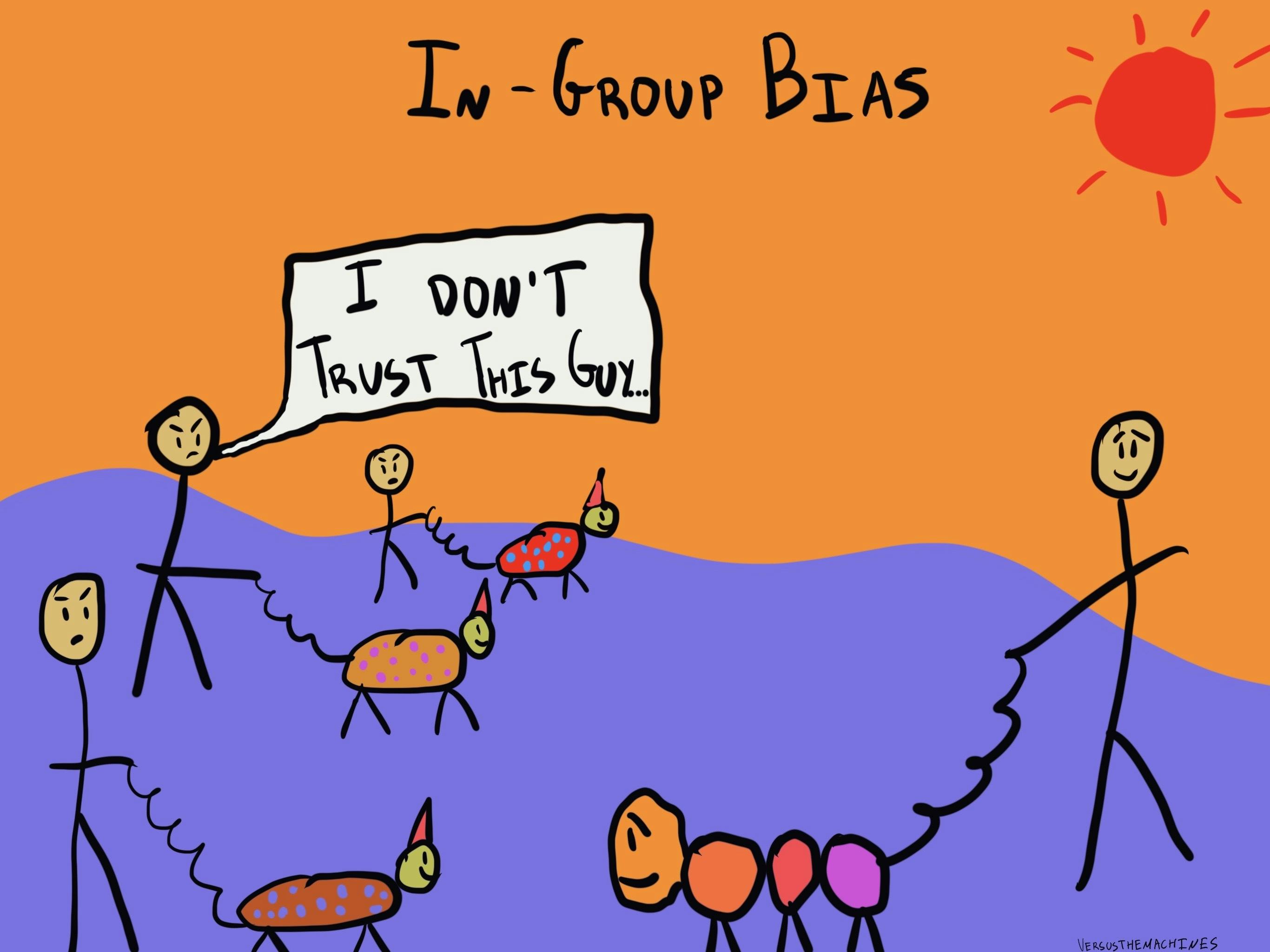Pourquoi traitons-nous mieux notre groupe d'appartenance que notre groupe d'exclusion ?
Qu'est-ce qu'un préjugé de groupe ?
Le biais de groupe (également appelé favoritisme de groupe) est la tendance qu'ont les gens à accorder un traitement préférentiel à ceux qui appartiennent au même groupe qu'eux. Ce biais se manifeste même lorsque les personnes sont placées dans des groupes de manière aléatoire, ce qui rend l'appartenance à un groupe pratiquement dénuée de sens.

Où ce biais se produit-il ?
Disons que vous êtes un fan de football et que vous supportez les New England Patriots. Au travail, vous avez deux collègues qui sont également des passionnés de football : John, qui est également fan des Patriots, et Julie, qui soutient les Philadelphia Eagles. Vous êtes beaucoup plus proche de John que de Julie, même si vous avez en fait plus de choses en commun (en dehors des préférences sportives) avec Julie qu'avec John. Vos amitiés professionnelles sont un exemple du biais de groupe à l'œuvre.